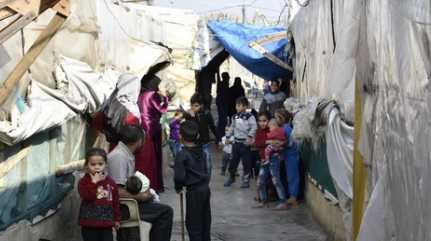
15 October 2022; MEMO: Amnesty International has called on the Lebanese authorities on Friday to stop implementing a plan to involuntarily return Syrian refugees to their country after statements were made by officials to resume their deportation in batches starting next week.
Following the outbreak of the conflict in neighbouring Syria, Lebanon became a destination for hundreds of thousands of Syrians who fled their homes as the fighting intensified. The authorities estimate that there are more than 1.5 million refugees on its territory, while the number of those registered with the United Nations is over 830,000.
Amnesty International's Acting Deputy Director for the Middle East and North Africa Diana Semaan shared in a statement: "The Lebanese authorities are scaling up the so-called voluntary returns, a plan which has been in place for four years, when it is well established that Syrian refugees in Lebanon are not in a position to take a free and informed decision about their return due to restrictive government policies on movement and residency, rampant discrimination, lack of access to essential services as well as unavailability of objective and updated information about the current human rights situation in Syria."
"In enthusiastically facilitating these returns, the Lebanese authorities are knowingly putting Syrian refugees at risk of suffering from heinous abuse and persecution upon their return to Syria," she added.
Lebanese President Michel Aoun announced on Wednesday that "the return of the displaced Syrians to their country" will begin next week.
Since the Syrian regime's army regained control of the largest part of the country, some countries have pushed for the deportation of refugees from their territories under the pretext that the intensity of the fighting has decreased. However, the cessation of battles, according to human rights and international organisations, does not mean that the return of refugees has become safe, considering the decrepit infrastructure, difficult economic conditions and security prosecutions.
In Lebanon, pressures on Syrian refugees include curfews, arrests, racism, deportation, raids and restrictions on residency procedures.
For years, the authorities have viewed the refugee file as a burden and believe that their presence has contributed to accelerating and exacerbating the ongoing economic collapse in the country since 2019.
Since 2017, the Lebanese General Security has been organising mass return operations, which it describes as "voluntary", based on more than 400,000 refugees being returned to Syria, according to its data. However, humanitarian organisations believe that the number of returnees is much lower and have documented "forced" deportation cases.
Director General of Public Security Abbas Ibrahim Al-Khamis said that the resumption of the process of returning refugees would take place according to the same mechanism previously used, noting that the next batch will include 1,600 people. He explained that the Lebanese side is still waiting for the response from the Syrian authorities to decide on the dates for their return.




